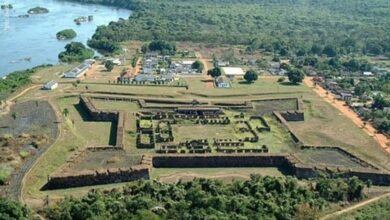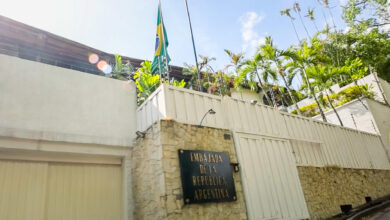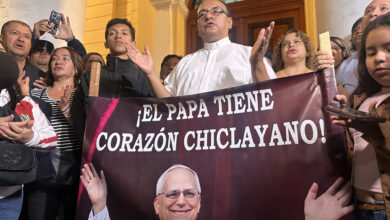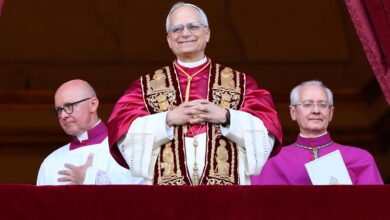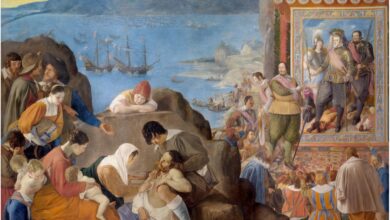Nicknames: the curious practice in sports
From Michael "Air" Jordan to Hirving "Chucky" Lozano there are many nicknames that are seen in sports. But, why is this custom?
Surely as a child, they told you in some way that it was not properly your official name. You grew up among nicknames, aliases or whatever you prefer to call them. Possibly you were annoyed because they told you in some way, and they laughed a lot. Like it or not, many of these nicknames remain in memory and identify us for a long time. It is a culture, a custom, that at least in Latin America is very common.
Leer en español: Los apodos: la curiosa costumbre en los deportes
That is why, in LatinAmerican Post we want to share with you a little the origin of this tradition, and how it became so important in sports, both in players and teams. According to Voix.com , common aliases are usually based on two conditions to portray our physique and / or personality. It is putting humor to a physical feature and it is a situation in which once they call you in some way, there is no going back to be told another one that you like more.
According to Magazine de Nicaragua, nicknames speak of the life and history of a person or country. These begin in common places like the house or the school, in a moment of personal inspiration or of some person of their surroundings, and even of the mind of a caricaturist. Of course, not all remain eternally, but some if they are remembered forever in the collective memory.
As the cartoonist, Manuel Guillén commented to Magazine that "a good nickname, that comes to shine in the feeling of the people, is the one that also tells us a story or carries it implicitly", beyond the mockery. The physical or personality traits are the most usual, but there are also as diminutives or related to qualities or defects such as goodness, wisdom, perseverance, or cruelty. Voix.com mentions several examples such as Juan XXIII, El Papa Bueno; Alfonso X, El Sabio; Paul of Tarsus, and The Apostle of the Gentiles.
Maybe you're interested in reading: "The Argentine Lionesses" take the reins of field hockey
Common in sports
Ace of Mexico compiled an interesting list of the 11 most horrific "nicknames" of national and international sports such as "Los Monstruos de Midway" in the NFL, "El Cadaver y la Calaca" in Mexican football to Luis Antonio Valdez or 'The Witch' and 'La Brujita' in Argentine soccer with Juan Ramón and Juan Sebastián Verón, and "El Monstruo" or "Mostro" with the Aztec goalkeeper Alexandro Álvarez.
The same media highlights in the first instance "The Dead Man" or "The Undertaker", a character who marked an era in wrestling (WWE) for his dark entrance to the stage and his record of victories.
Have you ever wondered why "Mexican" Hirving Lozano is being called "Chucky"? As Mexico explained that the youth of the PSV of Holland earned that nickname because he was very teasing with his teammates in the locker room and on the bus. There was someone who could not stand and retorted mocking his hair and his macabre smile disgusting, calling him as the popular "Diabolic Doll" of the movies.
The newspaper Primera Hora of Puerto Rico recalled that important sports figures from that country and the world in general such as Jose Ortiz, Luis de Leon, Ivan Rodriguez, Juan Gonzalez, George Herman Ruth Jr., Charles Barkley and Wilfredo Benitez.
The first case they refer to is that of Ortiz, one of the best centers in the history of Puerto Rican basketball, and who is known as "Piculín", but also as "El Concord". Although the mentioned means does not explain the origin of the "Piculín", if it did it with the "Concord", referring to which was the first supersonic passenger transport plane and that had a long and square design, similar to the Puerto Rican athlete.
The same article says that Puerto Rican volleyball also had its "baptist" nicknames in the figure of Julio "Buyín" Camacho, who already had his and dedicated himself to creating nicknames for a whole generation of players. "In my time, Yauco was a town where everyone had a nickname. What if "Pipote", what if "Cannon", etc. The vast majority of Yauco volleyball players in the 40s and 50s had a nickname," Camacho told Primera Hora.
The history of the teams
Nicknames, clearly, are not the exclusive concern of athletes because they have also been extended to teams. For example, Listas20minutos.es explains, why they say "meringues" to Real Madrid, "culés" to Barcelona and "colchoneros" to Atlético de Madrid. "They are called meringues because their shirts are white, the same as the candy that their own name indicates," the website says textually.
In the case of the team that today directs Diego "Cholo" Simeone, the term "colchoneros" was awarded to them in the post-war period when the mattresses were covered by a fabric with red and white stripes. Finally, in the case of Barcelona. The culé nickname refers to that between 1909 and 1922, played their games in a stadium with a small capacity of 6000 people, who sat squeezed IGNORE INTO wooden stands that turned their backs to the street showing the asses of the assistants, remaining as "culones".
One of the most prominent sports in this nicknames is rugby. In the case of Argentina, "The Pumas", as Infobae refers, was born on a 1965 tour through Southern Rhodesia and South Africa, where a historic victory was achieved against South Africans and a reporter from The Weekly Farmers mistook Yaguareté for the shirt with a cougar
In the case of New Zealand , the nickname All Blacks arose when the team toured the British Isles, France, and America, and apparently, among the many stories that are about it, the most accepted is that ensures that the press English called them that because of the color of their uniform, which is all black.
Another well-known case in Latin America is also Argentina, and they are "Las Leonas" of field hockey. According to El Clarín of Argentina, that alias was born in the Olympic Games in Sydney 2000. Argentina was forced to beat the Netherlands and for that, they appealed to the image of a lioness preparing for the battle in their uniform and that ended up giving them the necessary stimulus to succeed in that game.
LatinAmerican Post | Onofre Zambrano
Translated from: 'Los apodos: una costumbre en el deporte'


